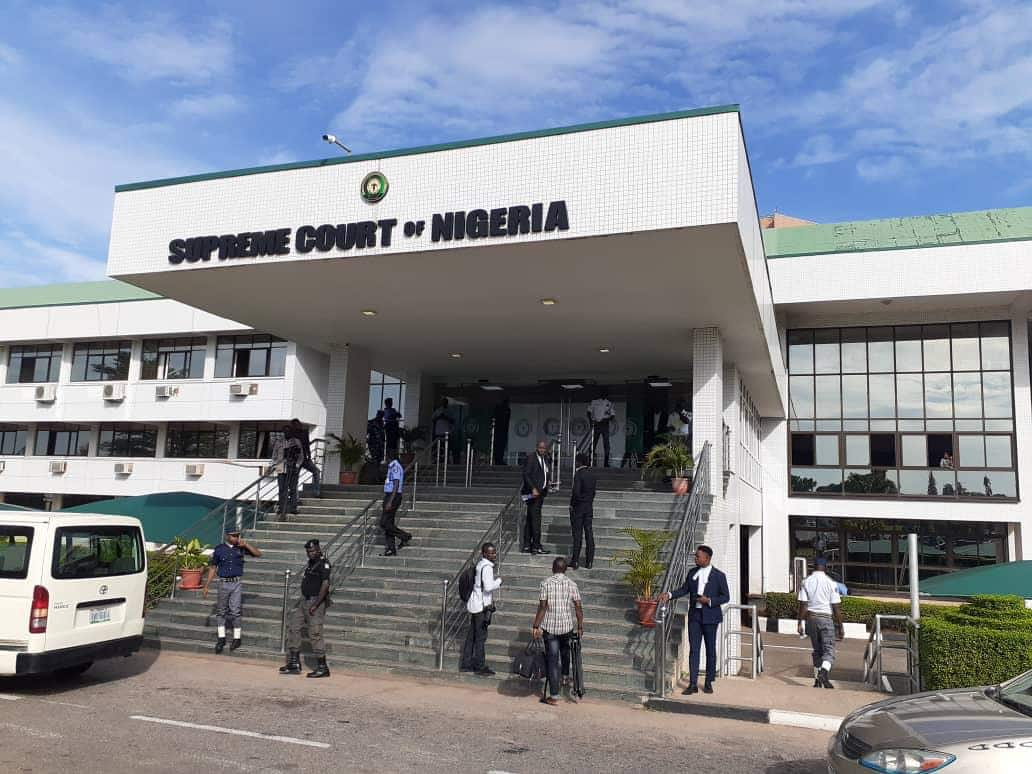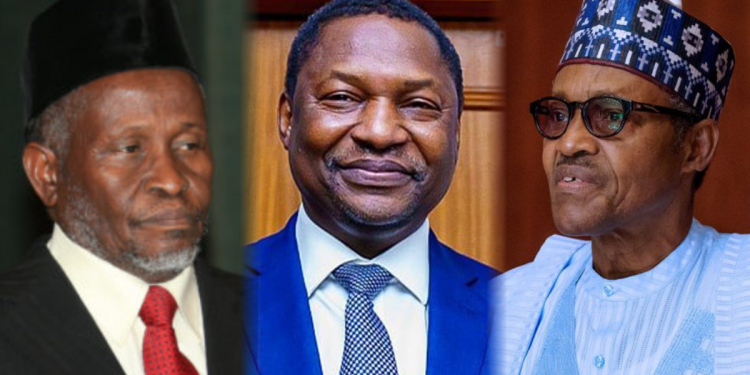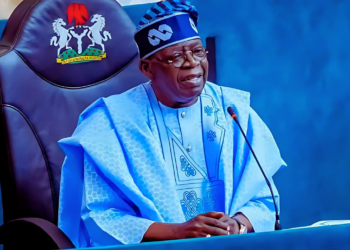The Nigerian Supreme Court on Friday rebooked President Muhammadu Buhari for approaching the apex court to strike out the controversial Section 84(12) of the Electoral Act after personally signing it into law in February.
The section which the federal government have fought to delete from the new Electoral Act (as amended) have for now, have survived the executive onslaught led by President Buhari and his Attorney General, Abubakar Malami, SAN, and stays as part of Nigerian electoral laws.
This rebook of Buhari was contained in the judgement the Supreme Court delivered on Friday striking out the suit filed by President Muhammadu Buhari and AG, Abubakar Malami.
The suit marked SC/CV/504/2022 and filed at the Supreme Court on 19th of April 29, 2022, by the executive, to strike out the controversial section, which President Buhari and Malami argued was inconsistent with the 1999 Constitution (as amended).
The suit was not even heard on merit, as the Supreme Court held that it lacks jurisdiction to entertain the case. It also held Buhari and Malami guilty of the abuse of court process, and on these two grounds struck out the suit.

BACKGROUND
Clariform reports that President Buhari and his Minister of Justice, Abubakar Malami, had approached the apex court two months ago, praying the court for an interpretation of the said Section 84(12), which became a very controversial clause even before the Electoral Amendment Act 2022 was signed by the president in February 2022.
The suit, which was filed at the apex court on the 19th of April has President Buhari and the AG, Abubakar Malami as the two Plaintiffs, while the two chambers of the National Assembly were listed as the only Defendant in the suit.
The controversial Section 84 (12) provides:
“no political appointee at any level shall be a voting delegate or be voted for at the convention or congress of any political party for the purpose of the nomination of candidates for any election.”
This clause elicited several debates from the political class, with the executive leading the battle to delete it from the Electoral Act. In fact, President Buhari specifically requested the National Assembly to delete the section after signing it, but the request was turned down.
CONSTITUITONAL ARGUMENT
A look at the court processes filed by the Plaintiffs, which Clariform has obtained, shows that Buhari and Malami were making a constitutional argument as the bases for seeking for the striking out of the controversial section from the Electoral Act.
They further submitted that the said Section 84(12) was unnecessary because the constitution has already made adequate provisions for what qualifies or disqualifies a candidate for relevant offices provide under the constitution.
This includes the offices of the President and Vice President of Nigeria, the office of state Governors and Deputy Governors, as well as the members of the two chambers of the National Assembly and the state Houses of Assembly, etc.
The Plaintiffs had argued specifically that the said Section 84(12) of the Electoral Act 2022 (as amendment), violets several provisions of the constitution. They listed these provisions of the constitution to include sections 42, 65, 66, 106, 107, 131, 137, 147, 151, 177, 182, 192 and 196.
Therefore, they prayed the apex court for “A declaration that the joint and or combined reading of the section 65, 66, 106, 107, 131, 137, 147, 151, 177, 182, 192 and 196 of the constitution of the Federal Republic of Nigeria, 1999, (as amended), the provision of Section 84 (12) of the Electoral Act, 2022 which also ignores Section 84(3) of the same Act, is an additional qualifying and/or disqualifying factors for the National Assembly, House of Assembly, Gubernatorial and Presidential elections as enshrined in the said constitution, hence unconstitutional, unlawful, null and void”.
TAKEAWAY
None of the above arguments were tested on their merit, because the Supreme Court did not find President Buhari and his AG, reposed with the required locus standee to even bring the action in the first place, without which the jurisdiction of the apex court cannot be invoked.
This was made clear in the court decision on Friday, were the Supreme Court unanimously rebooked President Muhammadu Buhari for wanting to approbate and reprobate at the same time.
Specifically, the apex court in the unanimous judgement delivered by Justice Emmanuel Agim, told Buhari that he couldn’t accent to the amended Electoral Act with the controversial Section 84 (12), and then turn around to challenge his own act.
Therefore, the Supreme Court essentially, held that Buhari and Malami were abusing court process by even bringing the matter before the apex court in the first place.












